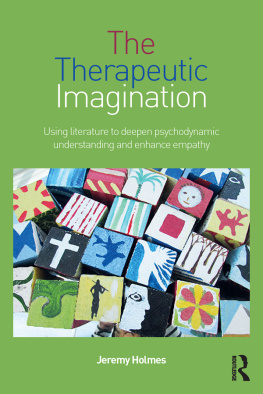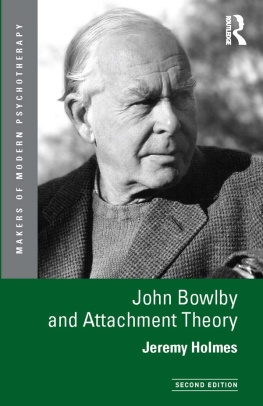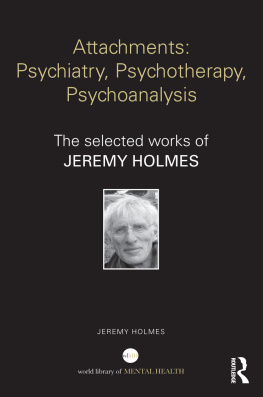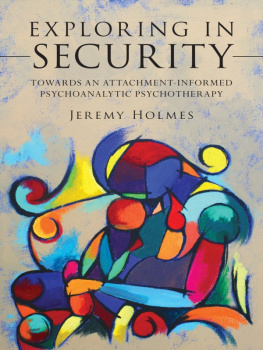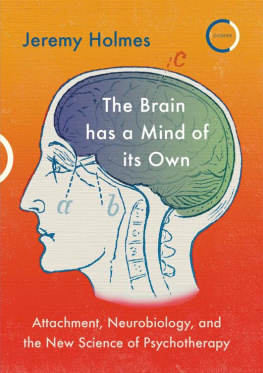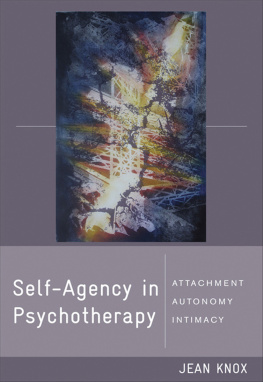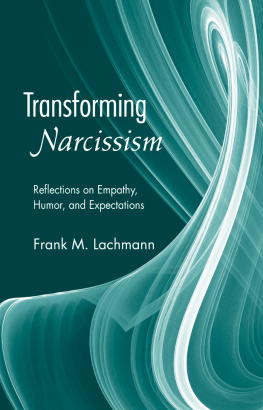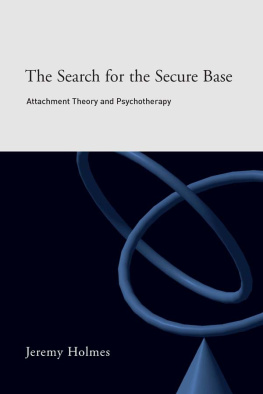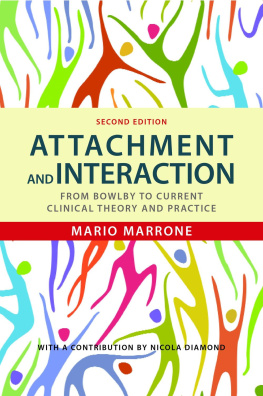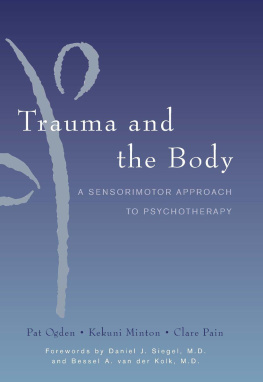THE THERAPEUTIC IMAGINATION
Imaginative play is a key aspect of successful psychotherapeutic treatments. Psychotherapy helps clients get in touch with, awaken and learn to trust their creative inner life, while therapists use their imagination to mentalise the suffering other and to trace the unconscious stirrings evoked by the intimacy of the consulting room.
Working from this premise, in The Therapeutic Imagination Jeremy Holmes argues unashamedly that literate therapists make better therapists. Drawing on psychoanalytic and literary traditions both classical and contemporary, argues, with the help of poetic examples, that a psychiatry shorn of psychodynamic creativity is impoverished and fails to serve its patients.
Clearly and elegantly written, and drawing on the authors deep knowledge of psychoanalysis and attachment theory and a lifetime of clinical experience, Holmes convincingly links the literary and psychoanalytic canon. The Therapeutic Imagination is a compelling and insightful work that will strike chords for therapists, counsellors, psychoanalysts, psychiatrists and psychologists.
Jeremy Holmes worked for 35 years as a Consultant Psychiatrist and Medical Psychotherapist in the NH S. He is currently Visiting Professor at the University of Exeter, UK, and lectures nationally and internationally. Recent publications include The Oxford Textbook of Psychotherapy, Storrs The Art of Psychotherapy and Exploring in Security: Towards an Attachment-Informed Psychoanalytic Psychotherapy.
THE THERAPEUTIC IMAGINATION
Using literature to deepen psychodynamic understanding and enhance empathy
Jeremy Holmes
First published 2014
by Routledge
27 Church Road, Hove, East Sussex BN3 2FA
and by Routledge
711 Third Avenue, New York, NY 10017
Routledge is an imprint of the Taylor & Francis Group, an informa business
2014 Jeremy Holmes
The right of Jeremy Holmes to be identified as author of this work has been asserted by him in accordance with sections 77 and 78 of the Copyright, Designs and Patents Act 1988.
All rights reserved. No part of this book may be reprinted or reproduced or utilised in any form or by any electronic, mechanical, or other means, now known or hereafter invented, including photocopying and recording, or in any information storage or retrieval system, without permission in writing from the publishers.
Trademark notice: Product or corporate names may be trademarks or registered trademarks, and are used only for identification and explanation without intent to infringe.
British Library Cataloguing in Publication Data
A catalogue record for this book is available from the British Library
Library of Congress Cataloging in Publication Data
Holmes, Jeremy, 1943
The therapeutic imagination : using literature to deepen psychodynamic understanding and enhance empathy / Jeremy Holmes.
pages cm
1. Imagery (Psychology)Therapeutic use. 2. ImaginationTherapeutic use.
3. Psychoanalysis. 4. Psychotherapy. I. Title.
RC489.F35H65 2014
616.8914dc23
2014002652
ISBN: 978-0-415-81957-2 (hbk)
ISBN: 978-1-138-78949-4 (pbk)
ISBN: 978-1-315-87982-6 (ebk)
Typeset in Times New Roman
by Wearset Ltd, Boldon, Tyne and Wear
CONTENTS
Part I
The poetics of psychotherapy
Part II
Psychotherapy and narrative
Part III
Psychotherapeutic approaches to psychiatric diagnoses
Part IV
Only connect: psychotherapy and psychiatry
The rationale for this compilation is the link between literary and psychodynamic aesthetics. Books and consulting rooms may seem very different domains although few of the latter are book-free but novelists and poets can be helpful to psychotherapists in a number of ways. First the voices of literary giants, if suitably harnessed, lend authority and a species of validation to psychotherapeutic ideas. Second, literary examples provide case-illustrations without the attendant difficulties of confidentiality and non-generalisability. Third and here is the main focus of this work there are parallels between the literary and the psychotherapeutic imagination, so that understanding literary creativity can enhance psychotherapeutic skilfulness. Literate therapists, I suggest, make better therapists.
This theme is explored in the introductory chapter, which is an extended conversation between Freud, Coleridge and George Eliot. I argue that psychoanalysts particularly interested in creativity and spontaneity, of whom Bion is an outstanding example, were drawing on a pre-psychoanalytic tradition with roots in German Romanticism, translated into the Anglo-Saxon world by Coleridge, Keats and Wordsworth.
The use of literature in psychoanalysis is far from new. Freud was deeply versed in the Western cultural tradition, drawing freely on art and literature but, oddly, not music to illustrate and buttress his arguments. At the kernel of his theories lies the Oedipal myth; without Sophocles there could have been no Freud, and no psychoanalysis; Ernest Jones (1948) famously analysed Hamlet in Oedipal terms. The psychoanalytic literature is replete with psycho-literary magpies drawn to glittering examples from the canon. Among contemporary analysts Ogden (1999), Wright (1991, 2010) and Britton (1998, 2003) have been particularly skilful in their use of literary examples. Williams and Waddell (1991), and Canham and Satyamurti (2003) have specifically linked psychoanalytic and literary thinking.
This book is in that tradition, but with two distinct features. First, its orientation is unashamedly practical. The author has a workaday background in psychiatry and psychodynamic psychiatry, and brings psychoanalytic ideas to bear on the quotidian world of the clinic and public health settings. Each chapter addresses a particular clinical problem, using literature to extend its range of reference and reverberation.
A second distinctive aspect derives from attachment theory (Holmes 1993/2013, 2010) as a significant psychodynamic voice. I am reaching here for three-way links between evidence-based understanding of parentinfant interactions, the processes of literary creativity and therapeutic efficacy. What good parenting, good literature and mutative therapy have in common is the paradoxical combination of security of form with creative uncertainty and exploration, dubbed by Feeney and van Vleet (2010) as the exploration paradox in which adventurousness and secure attachment go hand in hand.
A hallmark of sensitive parenting is partially contingent mirroring (cf. Beebe et al. 2012) the capacity of parents to respond to and imitate their childrens gestures, physical and later verbal, but to take them one step further, leading the child in turn to expand on her parents elaborations, and creating a vibrant interpersonal field, third (cf. Ogden 1994), or transitional space, distinct from the contributions of either party. Vitality and innovation Winnicotts (1971, p. 39) creative living flow from this balance between non-controlling structure and boundaried playfulness; rhyme without replication. Acquiring the capacity to inhabit this world, and to turn it to therapeutic advantage, is the essence of psychotherapeutic training, a life-long process in which assimilation of theory and active practice inform and nurture one another.
Mentalising or mind-mindedness is a mark of security-creating relationships (Meins

